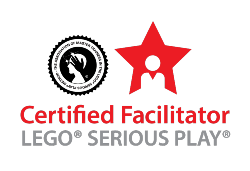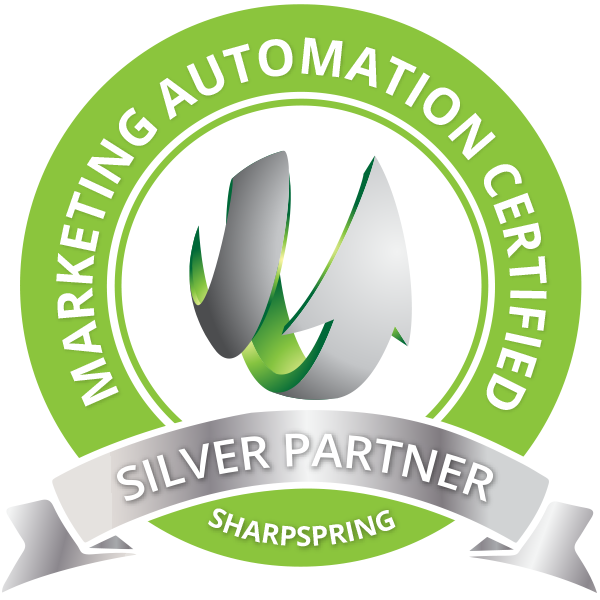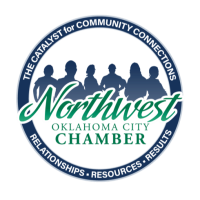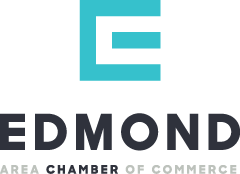
Owning your own business can be an exhilarating journey, but it is not without its challenges. It is no longer enough to do a great job in today’s highly competitive market.
Yes, a powerful brand and effective marketing can build a business. Still, today, people want to connect with brands, which is often found in connection with a person at the top. People often view business owners as a representation of the entire company. So, if you are the face of an organization, building up your personal brand and getting involved in self-marketing is essential.
As the leader of your company or organization, your face, performance and personality demonstrate to others how well your company performs overall, even if you have a strong team working behind the scenes. A healthy, positive and strong personal brand builds a company’s profile and reputation.
The previous Power of a Brand blog posts focused on marketing a business’s products and services. But, given that people are looking to connect with people and communities, this post will focus on the importance of building a personal brand and self-marketing. In this blog post, we will discuss what a personal brand is, why it is important, why you need personal branding, tips on self-marketing and what to avoid.
What is a personal brand, and why is it important?
People tend to buy a product or service from brands they trust and people they know. But how do people find a person who does an excellent job in a competitive market if they don’t have any connections? This is when personal branding comes into play.
For example, if you want to find a good restaurant, you may start with restaurant reviews on popular review services such as Yelp or Open Table. For the restaurant owner, customer reviews are often the only way a potential customer will find their restaurant. Chances are the reviews are nothing like the marketing strategy they spent months developing before they opened the business.
Having a personal brand is equivalent to having positive and memorable client reviews. It enables you to stand out in your industry, shapes how others perceive you and the company, creates an indelible impression and enhances your ability to sell to the highest potential clients.
But I just run the business; why do I need personal branding?
Even if you have a strong team doing the heavy lifting, if you are a business owner involved in daily operations, you are the face of the company. The buck literally stops and starts with you, so don’t think you can shy away from marketing yourself because others do most of the work or you feel uncomfortable with self-promotion.
Personal branding also applies to association executives. Associations are, by design, made to create community, so association executive directors and managers also need to embrace their position as the face of the organization.
Some companies remain “faceless” and may not see the point in a personal brand. But people want to buy from people they know, like and trust. You can see this demonstrated in even the most powerful brand marketing. For example, Flo from Progressive Insurance is a made-up character, but the human element, storyline and humor have made her the face of the company for many years.
But there is one distinction you need to consider. A personal brand may already exist out there for you. It is the impression you’ve already built that live online and in your community in the present. Then there is personal branding, a deliberate attempt to shape that impression moving forward.
Building a personal brand
The process for building a personal brand is similar to the steps one would take in creating a marketing plan for a company. If you haven’t read the other blog posts that walk you through how to build a powerful brand, go back and take a detailed look here Uptimize Marketing Blog.
Developing a marketing strategy is the first step in building a solid personal brand. The next step is to implement that strategy and begin actively promoting yourself and your brand in the community. Here are some practical ways to implement your personal branding strategy:
- Establish an online presence
A solid online presence is essential for building your brand in today’s digital age. Start by creating a professional website, a blog that showcases your skills, expertise and accomplishments and makes relevant content. You can also create social media profiles on LinkedIn, Twitter and Instagram to connect with others in your industry and share your content.
One example of a great online presence is René Banglesdorf, founder of the Aviation Collective (https://renebanglesdorf.com/).
- Attend networking events
Attending industry events and networking opportunities is a great way to connect with others in your field and build relationships with potential clients or collaborators. Come prepared with a well-crafted elevator pitch and a clear understanding of your brand message. It’s good to be able to tell people in ten seconds what you do, but it’s even better if you can tell them what value you add.
For example, Dave Younge, Owner of Flex-Ability Concepts, serves on boards and volunteers with several organizations related to the company’s offerings. Through these partnerships, Dave has extended his credibility and network within his industry (Dave Younge’s Entrepreneur Close-Up).
- Share your knowledge
Establishing yourself as a thought leader in your industry can help build your personal brand and increase your credibility. Consider sharing your knowledge through public speaking engagements, writing articles for industry publications or hosting webinars or podcasts.
- Collaborate with others
Collaborating with others in your industry can help expand your reach and expose you to new audiences. Consider partnering with other professionals or businesses on projects or events that align with your brand values.
- Provide great service
If you are the face of an organization, how everyone on the team performs reflects on you. Your performance is exponentially boosted or hindered by happy or unhappy clients. Clients who experience great service will spread the word quickly and are often seen as a more credible reference since they don’t have ownership of your business.
- Encourage positive reviews and referrals from happy clients
A powerful personal brand is also the first step in developing a strong referral network. Referrals are your best source of business and have the highest potential for conversion with the lowest cost. Read the blog post, Collaborators to learn more about how this works.
Referrals and reviews are free, viewed as more credible and are in the direct path of potential clients looking for your services. Plus, their reviews will build your presence online and live indefinitely on the internet.
However, even though you may have a lot of happy clients, most will not take the time to write a review for you unless you ask. Therefore, proactively ask past clients to write a positive review that you can use in your marketing. And don’t shy away from customers who had a bad experience but then received a prompt response, and their issues was resolved.
A great example of referrals in action is the owners of Absolute Balance Pilates, Jennifer Kerr and Lori Payne. During their episode of Entrepreneur Close-Up, Lori and Jen shared that they have been in business for over 20 years and still mostly run off client referrals. In fact, they still have some of their original clients coming back to the studio today.
- Seek out opportunities
Finally, don’t hold back from seeking opportunities to promote yourself and your brand. After all, your marketing is working if people are talking about you. This may include seeking out media coverage, participating in industry awards programs or offering your services pro bono to a nonprofit organization.
By implementing these strategies, you can build a strong personal brand that sets you apart from your competitors and positions you for long-term success in your industry. Remember, building a personal brand is an ongoing process, so be patient, stay consistent and refine your strategy over time.
What’s stopping you from creating a personal brand?
Unfortunately, self-marketing is intimidating for a lot of people. Putting yourself out there can be scary, especially when you face rejection. However, if you can overcome these three barriers, you will be off to the races in building a strong personal brand.
Imposter Syndrome
Steer clear of Imposter Syndrome, or the sinking feeling that most people get when you don’t believe in your abilities and sooner or later, you believe people will discover that you aren’t capable of doing the work.
The biggest obstacle to personal branding is not putting yourself out there. Imposter Syndrome can make people feel frozen, unable to move forward with their plans. Imposter Syndrome also cuts down your power because if you don’t believe in yourself, others will pick up on that feeling and won’t believe in you either.
Not knowing what you provide
If you know that you provide a service that no one else offers, or do it better than your competitors, make sure you can explain it to potential clients. This especially holds if you provide a one-of-a-kind service. Practice your elevator speech about what you do and what problems you solve. Your message should include one or more of the three things people seek: pain relief, peace of mind or status.
Make sure it is concise and that an everyday person can understand it. For example, many organizations are stuck in industries that thrive on using acronyms, and if you use them every day, they become part of your language. Still, they are not part of everyone else’s. Once you say an acronym to someone unfamiliar with it, they stop listening, and their brain is stuck on figuring out what it stands for—they’ve missed your entire message.
Finally, make sure your message is consistent. It takes time to build a personal brand, so the more consistency you have in your personal brand message, the more people will begin to associate your message with your personal brand.
The disconnect between strategy and tactics
Finally, to create a powerful personal brand, ensure that everything you’ve put into your personal brand marketing strategy comes alive in everything you do—your vision, mission and values need to align with your actions.
If you act differently than what you are self-marketing yourself as, people will perceive you by your actions, not what is written down and locked away in your marketing strategy.
Conclusion
You used to be able to say, “If you do a good job, people will come.” But now, personal branding is one of the best ways to get noticed. A powerful personal brand can lead to increased trust among potential customers, opportunities for partnerships and collaborations and a loyal following of clients who trust and value their services.
By establishing a clear brand message, entrepreneurs can increase their credibility and establish themselves as thought leaders in their industry. Through personal branding, such as leveraging social media and networking, business owners can reach a wider audience and attract new clients.
Finally, personal branding helps business owners differentiate themselves from their competitors and can help attract clients who are looking for something different from what their competitors offer.
In today’s crowded market, personal branding helps build credibility among your existing network and potential clients. By effectively marketing yourself, you can build awareness, increase credibility, expand your reach and differentiate yourself from your competitors. While it can be daunting to put yourself out there and promote your business, the benefits of effective personal branding are undeniable.
Don’t know where to begin with self-marketing? Need to build a strategy for your personal brand? We can help! Reach out for a no-obligation, free consultation to get started.










